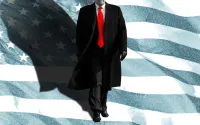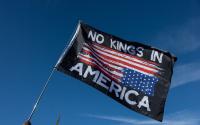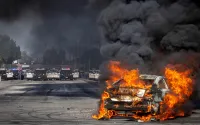Common Dreams / Published on Tuesday, November 7, 2006 by the Guardian / UK Billy Bragg
George Orwell famously struggled with the meaning of Englishness at the height of the blitz, searching in The Lion and the Unicorn for those things he felt worth defending against nazism: "the diversity of it, the chaos! The clatter of clogs in the Lancashire mill towns, the to-and-fro of the lorries on the Great North Road ... the old maids biking to Holy Communion through the mists of the autumn morning ... How can anyone make a pattern out of this muddle?" Nearly 66 years later, things don't seem much clearer. The diversity that Orwell recognised is more pronounced; the challenge of defining a recognisable national identity even greater. Some might ask: why bother? Isn't the great thing about Englishness the fact that it is so hard to define? In ordinary times such debates are largely academic. However, these are not ordinary times. For a Muslim community that is constantly bombarded with demands to assimilate, the absence of a formal set of values that define who we are makes any attempt to reconcile the core values of Islam with those of English society almost impossible. If integration is to be anything more than a one-way street in which incomers are constantly forced to submit to the will of the majority, if we want to create an inclusive society around commonly held values, the place to begin looking for those values is in our history. History is multilayered - many cultures can claim a place as their own. Take the Manchester Free Trade Hall, for example. It was built in 1856 as a meeting place for opponents of those who held a monopoly over the price of corn. Christabel Pankhurst, campaigning for votes for women, was arrested there in 1905 for spitting in the face of a policeman. In 1976 it was the venue for a Sex Pistols gig, an event which inspired the whole Manchester music scene. So whose tradition should be given prominence? The anti-corn-law movement, the suffragettes or the punks? In the event, everyone lost out when the building was recently converted into a hotel. As history becomes increasingly democratised, whether under initiatives such as Black History Month or through individuals exploring their family trees, we need to ensure that the subject does not become segregated. The next step must be to highlight the common threads that link different communities across ethnicity, geography and time. But does our history - that of a white, Christian, democratic society - have anything to say to those who have recently arrived from countries that share none of these characteristics? Can heritage accommodate those who feel excluded? I believe it can. Less than a century ago, most British citizens were excluded from fully realising their individual potential by class barriers; excluded from expressing their democratic will by gender; excluded from good health by poverty. All the way back to the Magna Carta, our history has examples of people standing up for their right to be treated fairly. It is this struggle for belonging that connects the majority of English people with the minority of recently arrived immigrants - a struggle to be accepted as part of society, as respected, responsible citizens. Our history, far from being a stuffy subject that concerns itself merely with kings, queens and generals, has the potential to make an important contribution to the increasingly fractious debate about who does and does not belong. To counter those who exploit fear in order to divide communities, we urgently need to highlight the common threads that bind us as a society. First and foremost will be the country that we share: the "English" in English heritage is surely a matter of place, not race. Billy Bragg is a musician and author of The Progressive Patriot - A Search for Belonging |






